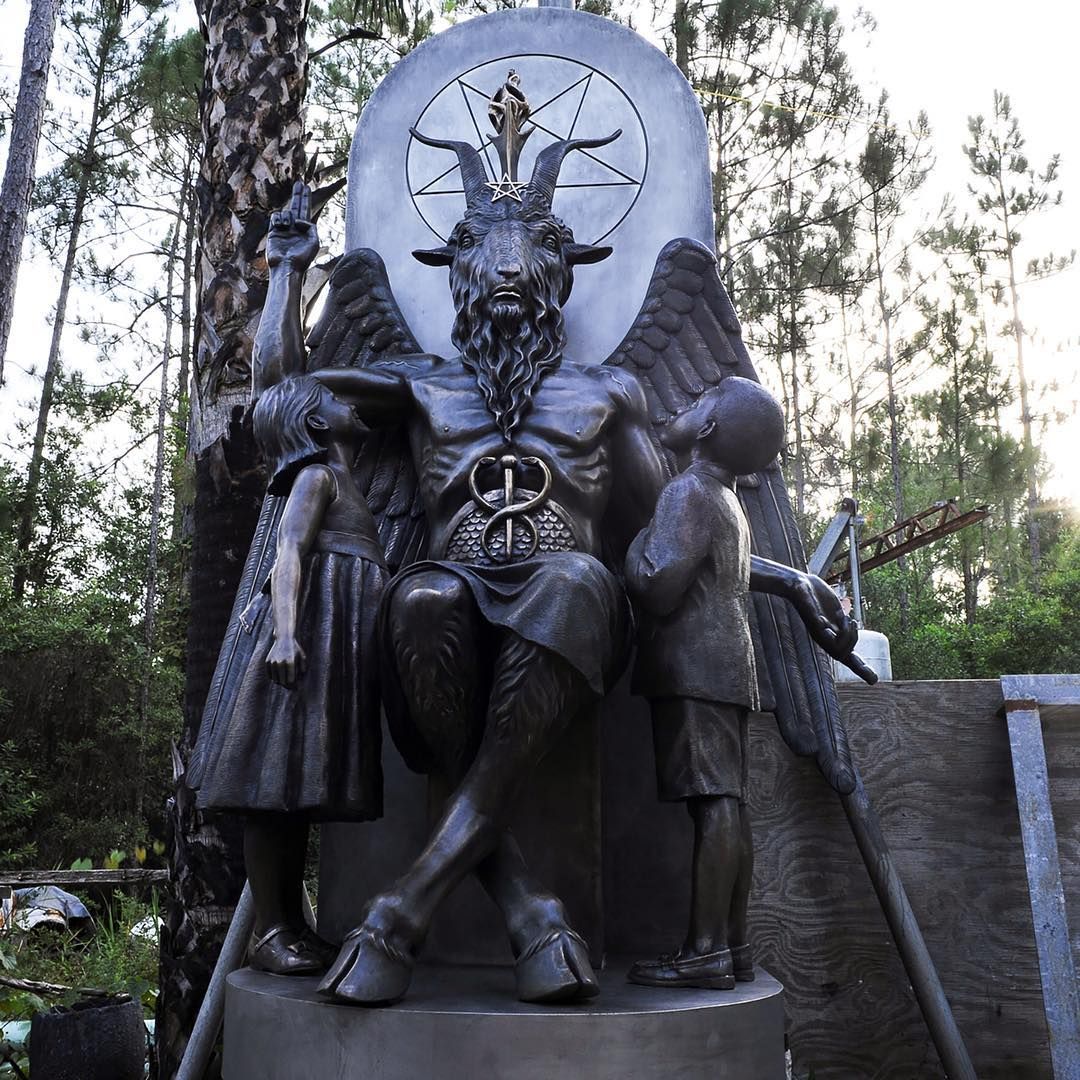- Mar 5, 2024
- 2,299
- 1,127
Cultivating The Word Of God, Which Has The Power To Save Your Soul

Do you cultivate the growth of God's word within you? The apostle Paul once compared our growth in the word to Christ Himself being "birthed" within us, telling the Galatians, "I travail in labor again, until Christ be formed within you." Similarly, James would now use an analogy to teach that we must allow the "seed" of God's word to be implanted within us, for it is the word which ultimately saves our souls by producing the righteousness of God.
Having wished, He brought us forth through the word of truth, for us to be a kind of first fruits of His creations. Therefore, my dear brothers, let every man be quick to hear, slow to speak, and slow to wrath, for the wrath of man does not cultivate the righteousness of God. Wherefore, having set aside all [spiritual] filthiness, and the excrement of evil, let us receive with meekness the implanted word, which has the power to save your souls. (James 1:18-21)
Most English translations miss this, but James used the Greek word κατεργάζομαι here, which was used regularly of cultivation, and he also appears to have made reference to fertilizer in this passage as well, for he mentioned "filthiness, and the excrement of evil." The word περισσεία was apparently a euphemism for manure, given that a sister noun meant literally "excrement" in Classical Greek (see the alternate rendering of περίσσωμα for περίσσευμα in Liddell-Scott, P. 1387). And the other word ῥυπαρία literally meant "filth." The alternate noun form was used as literal filth in 1 Peter 3:21, while the same word was also used to describe moral filth and spiritual uncleanness in other Biblical passages (see Revelation 22:11, Zechariah 3:3-4).
His numerous allusions to demons in this letter suggests James was thus referring to unclean spirits by these phrases; demons who incite us to anger and strife. When we succumb, it can stand in the way of our receiving the teachings of others because our resentments get in the way. Our anger or bitternesses become like a heavy layer of manure that can block the seed from being implanted within us.
Modern accounts testify to how demons are indeed filthy, and even smell like dung and rotting flesh when encountered in the spirit realm. In some testimonies they are actually covered with it, such as in Bill Wiese's account where he was dropped into a cell inhabited by two incredibly evil spirits.
The creatures weren't animals, but they weren't human either. Each beast resembled a reptile in appearance, but took on human form. Their arms and legs were unequal in length, out of proportion - without symmetry. The first one had bumps and scales all over its grotesque body. It had a huge, protruding jaw, gigantic teeth, and large sunken-in eyes. This creature was stout and powerful, with thick legs and abnormally large feet. It was pacing violently around the cell like a caged bull, and its demeanor was extremely ferocious. The second beast was taller and thinner, with very long arms and razor sharp fins that covered its body. Protruding from its hands were claws that were nearly a foot long... I was extremely nauseous from the terrible, foul stench coming from these creatures. It was absolutely disgusting, foul, and rotten. It was, by far, the most putrid smell I have ever encountered. If you could take every rotten thing you can imagine, such as an open sewer, rotten meat, spoiled eggs, sour milk, dead rotting animal flesh, and sulphur, and magnify it a thousand times, you might come close. This is not an exaggeration. The odor was actually extremely toxic, and that alone should have killed me. (Wiese, 23 Minutes In Hell, P.3-4, 7)
This is not a new revelation but something the church has understood for centuries. Writing back in the 1600s, writers also spoke of demons in similar terms, for the Lord was warning believers of the realities of Hell back then as well.
The prophecy of Isaias will thus be fulfilled: "Instead of a sweet smell there shall be a stench" (Is. iii. 24). Decaying animal matter emits so horrible an odor that no one likes to go near it. But if we imagine not one tainted carcass but hundreds of thousands heaped together, the air for miles around would be so infected that it would cause the death of all in the vicinity... How much worse will it be in Hell, where the bodies will lie close to one another, without any hope of being separated. And as bad as this stench is, it is greatly increased by the presence of the devils, who naturally are far more offensive to the nostrils than the bodies of the lost. We read in the life of St. Martin that an evil spirit appeared to him on one occasion, and the stench that filled the room was so overwhelming that the Saint said to himself: "If one single devil has so disgusting an odor, what can the stench be in Hell, where there are thousands of devils all together?" (The Four Last Things, On the vile odors of Hell, Martin Von Cochem)
Thus, this appears to be why James compared the anger and "wrath" that demons incite us to with the "filth" of excrement. Strife and hatred block the word from being implanted in our hearts and minds, just like hardened and caked on manure blocks seed from being implanted in the ground. Manure was spread directly on fields during ancient times beginning in Egypt, but if there was too much it it has to be moved aside. So, too, does "the wrath of man" have to be set aside if we are to make room for receiving the word of God, and as we shall see, without doing so it is impossible to affect change in a human life.
The Salvation Of Souls
Understanding the Parable of the Sower is foundational to an understanding all the parables, and yet sadly it is sometimes being taught poorly today. Some teach that it is about receiving 30, 60 and 100 times the financial return on one's giving, but this is a misleading interpretation. Others teach that it is about converting as many souls over to Christ as possible through evangelism, but this is in error as well. What the Parable actually teaches is that believers need to continue cultivating the word of God in their hearts and minds until it (i.e. the word of God itself) multiples 30, 60 or 100 times over. When this happens it naturally spreads about in a "harvest" that begins saving souls and instructing others in the word of God. But the principle purpose is complete conversion of the believer himself. When revelation from the Holy Spirit multiplies 60 or a 100 times over, character change will be inevitable, and this is the focus of the parable. The focus is what becomes of the word itself.
And He said to them, "Unto you it is given to know the mystery of the kingdom of God, but to them that are without, all these things are done in parables... The sower sows the word. And these are the seeds where the word is being sown by the pathway, and when they hear, immediately Satan comes and takes away the word having been sown into them. And these are in like manner the seeds being sown upon the rocky ground, who, when they hear the word, immediately receive it with joy, yet have no root in themselves but are temporary. Then, with affliction and persecution having arisen because of the word, immediately they are scandalized. And these are the seeds being sown among the thorns. These are the ones hearing the word, yet the anxieties of this age, and the deceitfulness of riches, and the desires for other things entering in, choke out the word, and it becomes unfruitful. And these are the seeds having been sown upon the good ground, such as hear the word and receive it, and bring forth thirty, sixty, and one hundredfold fold." (Mark 4:14-20)
The "seed" is the word itself, and revelation concerning the mysteries of the kingdom. But the word could die away, which meant believers had to keep the word growing within them in order to be saved when all was said and done. The birds represented demons, who would inevitably come to snatch the seed away before it had a chance to grow, but the word was growing in the second and third groups, and significantly so. But it grew in the second only until persecution came, and in the third only until thorns rose up and choked it. These believers received the word and it was growing, yet because they didn't make sure that it continued to grow, it ended up dying away. This is why true Biblical salvation is not in reality a one time decision but a lifetime choice that must be lived out. It's why Paul said we must continue to "work out our salvation with trembling and fear."
The Light Has Come
The need to grow in God's word was stressed in His next parable as well, where Jesus told the disciples that the Light of the world had now come, and He had no intentions of being hidden away in darkness. And He would send the Holy Spirit that they might become cities set on a hill as well, so what they needed to do was apply themselves to receiving as much Light as possible:
And He was saying unto them, "Is a lamp brought that it may be put under bushel basket, or under a bed, and not that it may be placed on a lamp stand? For nothing is hidden which shall not be made manifest, nor is anything kept secret but that it should come to light. If anyone has ears to hear, let him hear. (Mark 4:21-23)

Do you cultivate the growth of God's word within you? The apostle Paul once compared our growth in the word to Christ Himself being "birthed" within us, telling the Galatians, "I travail in labor again, until Christ be formed within you." Similarly, James would now use an analogy to teach that we must allow the "seed" of God's word to be implanted within us, for it is the word which ultimately saves our souls by producing the righteousness of God.
Having wished, He brought us forth through the word of truth, for us to be a kind of first fruits of His creations. Therefore, my dear brothers, let every man be quick to hear, slow to speak, and slow to wrath, for the wrath of man does not cultivate the righteousness of God. Wherefore, having set aside all [spiritual] filthiness, and the excrement of evil, let us receive with meekness the implanted word, which has the power to save your souls. (James 1:18-21)
Most English translations miss this, but James used the Greek word κατεργάζομαι here, which was used regularly of cultivation, and he also appears to have made reference to fertilizer in this passage as well, for he mentioned "filthiness, and the excrement of evil." The word περισσεία was apparently a euphemism for manure, given that a sister noun meant literally "excrement" in Classical Greek (see the alternate rendering of περίσσωμα for περίσσευμα in Liddell-Scott, P. 1387). And the other word ῥυπαρία literally meant "filth." The alternate noun form was used as literal filth in 1 Peter 3:21, while the same word was also used to describe moral filth and spiritual uncleanness in other Biblical passages (see Revelation 22:11, Zechariah 3:3-4).
His numerous allusions to demons in this letter suggests James was thus referring to unclean spirits by these phrases; demons who incite us to anger and strife. When we succumb, it can stand in the way of our receiving the teachings of others because our resentments get in the way. Our anger or bitternesses become like a heavy layer of manure that can block the seed from being implanted within us.
Modern accounts testify to how demons are indeed filthy, and even smell like dung and rotting flesh when encountered in the spirit realm. In some testimonies they are actually covered with it, such as in Bill Wiese's account where he was dropped into a cell inhabited by two incredibly evil spirits.
The creatures weren't animals, but they weren't human either. Each beast resembled a reptile in appearance, but took on human form. Their arms and legs were unequal in length, out of proportion - without symmetry. The first one had bumps and scales all over its grotesque body. It had a huge, protruding jaw, gigantic teeth, and large sunken-in eyes. This creature was stout and powerful, with thick legs and abnormally large feet. It was pacing violently around the cell like a caged bull, and its demeanor was extremely ferocious. The second beast was taller and thinner, with very long arms and razor sharp fins that covered its body. Protruding from its hands were claws that were nearly a foot long... I was extremely nauseous from the terrible, foul stench coming from these creatures. It was absolutely disgusting, foul, and rotten. It was, by far, the most putrid smell I have ever encountered. If you could take every rotten thing you can imagine, such as an open sewer, rotten meat, spoiled eggs, sour milk, dead rotting animal flesh, and sulphur, and magnify it a thousand times, you might come close. This is not an exaggeration. The odor was actually extremely toxic, and that alone should have killed me. (Wiese, 23 Minutes In Hell, P.3-4, 7)
This is not a new revelation but something the church has understood for centuries. Writing back in the 1600s, writers also spoke of demons in similar terms, for the Lord was warning believers of the realities of Hell back then as well.
The prophecy of Isaias will thus be fulfilled: "Instead of a sweet smell there shall be a stench" (Is. iii. 24). Decaying animal matter emits so horrible an odor that no one likes to go near it. But if we imagine not one tainted carcass but hundreds of thousands heaped together, the air for miles around would be so infected that it would cause the death of all in the vicinity... How much worse will it be in Hell, where the bodies will lie close to one another, without any hope of being separated. And as bad as this stench is, it is greatly increased by the presence of the devils, who naturally are far more offensive to the nostrils than the bodies of the lost. We read in the life of St. Martin that an evil spirit appeared to him on one occasion, and the stench that filled the room was so overwhelming that the Saint said to himself: "If one single devil has so disgusting an odor, what can the stench be in Hell, where there are thousands of devils all together?" (The Four Last Things, On the vile odors of Hell, Martin Von Cochem)
Thus, this appears to be why James compared the anger and "wrath" that demons incite us to with the "filth" of excrement. Strife and hatred block the word from being implanted in our hearts and minds, just like hardened and caked on manure blocks seed from being implanted in the ground. Manure was spread directly on fields during ancient times beginning in Egypt, but if there was too much it it has to be moved aside. So, too, does "the wrath of man" have to be set aside if we are to make room for receiving the word of God, and as we shall see, without doing so it is impossible to affect change in a human life.
The Salvation Of Souls
Understanding the Parable of the Sower is foundational to an understanding all the parables, and yet sadly it is sometimes being taught poorly today. Some teach that it is about receiving 30, 60 and 100 times the financial return on one's giving, but this is a misleading interpretation. Others teach that it is about converting as many souls over to Christ as possible through evangelism, but this is in error as well. What the Parable actually teaches is that believers need to continue cultivating the word of God in their hearts and minds until it (i.e. the word of God itself) multiples 30, 60 or 100 times over. When this happens it naturally spreads about in a "harvest" that begins saving souls and instructing others in the word of God. But the principle purpose is complete conversion of the believer himself. When revelation from the Holy Spirit multiplies 60 or a 100 times over, character change will be inevitable, and this is the focus of the parable. The focus is what becomes of the word itself.
And He said to them, "Unto you it is given to know the mystery of the kingdom of God, but to them that are without, all these things are done in parables... The sower sows the word. And these are the seeds where the word is being sown by the pathway, and when they hear, immediately Satan comes and takes away the word having been sown into them. And these are in like manner the seeds being sown upon the rocky ground, who, when they hear the word, immediately receive it with joy, yet have no root in themselves but are temporary. Then, with affliction and persecution having arisen because of the word, immediately they are scandalized. And these are the seeds being sown among the thorns. These are the ones hearing the word, yet the anxieties of this age, and the deceitfulness of riches, and the desires for other things entering in, choke out the word, and it becomes unfruitful. And these are the seeds having been sown upon the good ground, such as hear the word and receive it, and bring forth thirty, sixty, and one hundredfold fold." (Mark 4:14-20)
The "seed" is the word itself, and revelation concerning the mysteries of the kingdom. But the word could die away, which meant believers had to keep the word growing within them in order to be saved when all was said and done. The birds represented demons, who would inevitably come to snatch the seed away before it had a chance to grow, but the word was growing in the second and third groups, and significantly so. But it grew in the second only until persecution came, and in the third only until thorns rose up and choked it. These believers received the word and it was growing, yet because they didn't make sure that it continued to grow, it ended up dying away. This is why true Biblical salvation is not in reality a one time decision but a lifetime choice that must be lived out. It's why Paul said we must continue to "work out our salvation with trembling and fear."
The Light Has Come
The need to grow in God's word was stressed in His next parable as well, where Jesus told the disciples that the Light of the world had now come, and He had no intentions of being hidden away in darkness. And He would send the Holy Spirit that they might become cities set on a hill as well, so what they needed to do was apply themselves to receiving as much Light as possible:
And He was saying unto them, "Is a lamp brought that it may be put under bushel basket, or under a bed, and not that it may be placed on a lamp stand? For nothing is hidden which shall not be made manifest, nor is anything kept secret but that it should come to light. If anyone has ears to hear, let him hear. (Mark 4:21-23)










